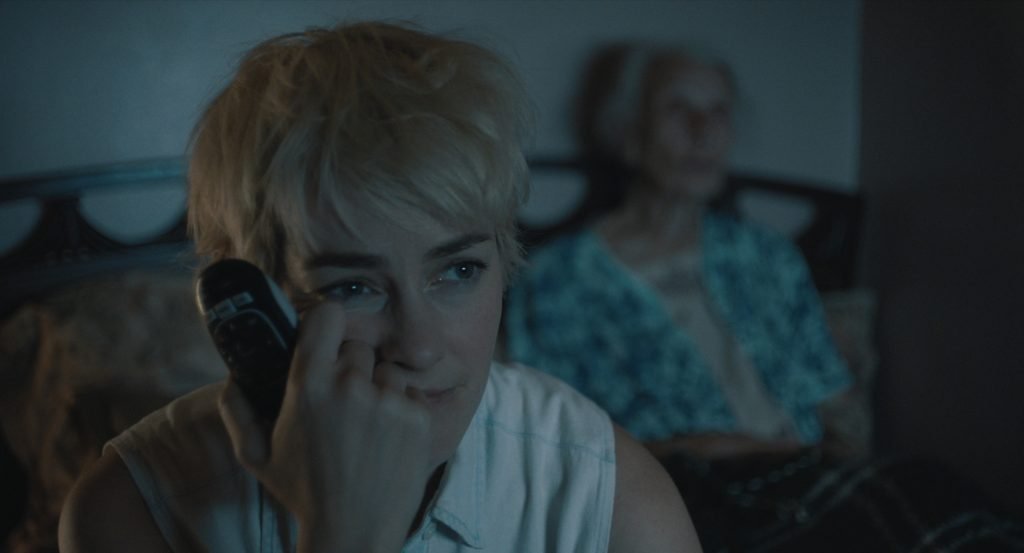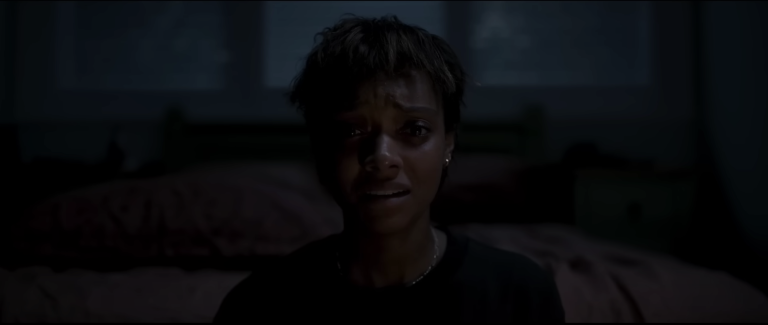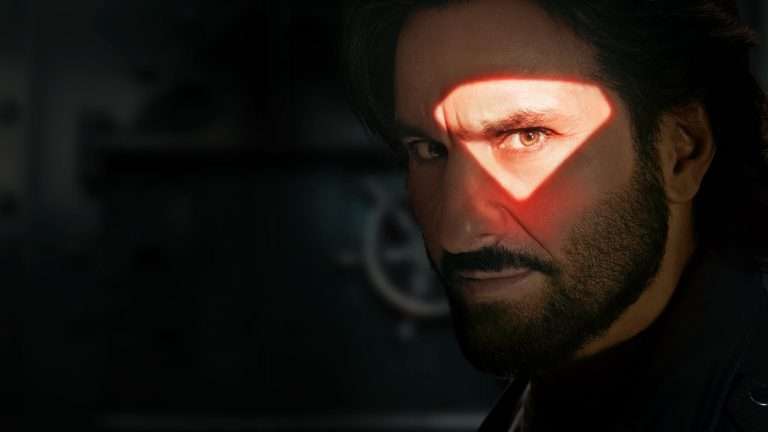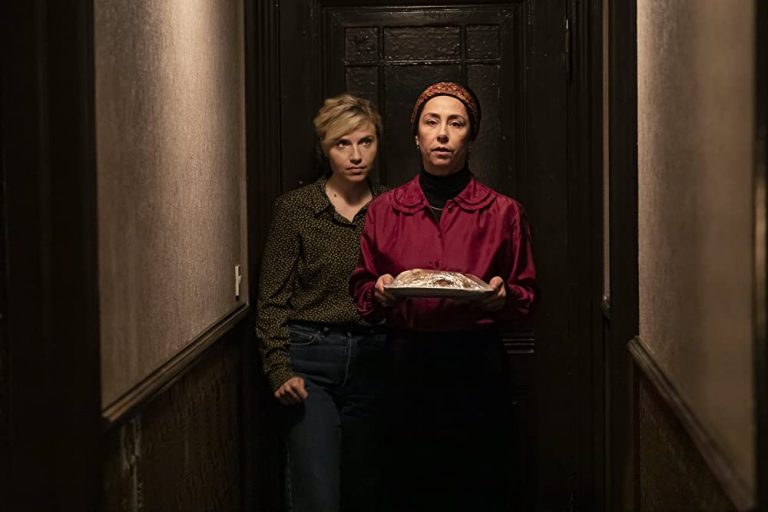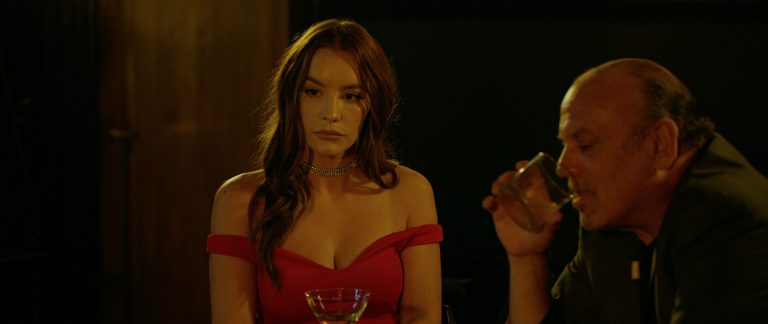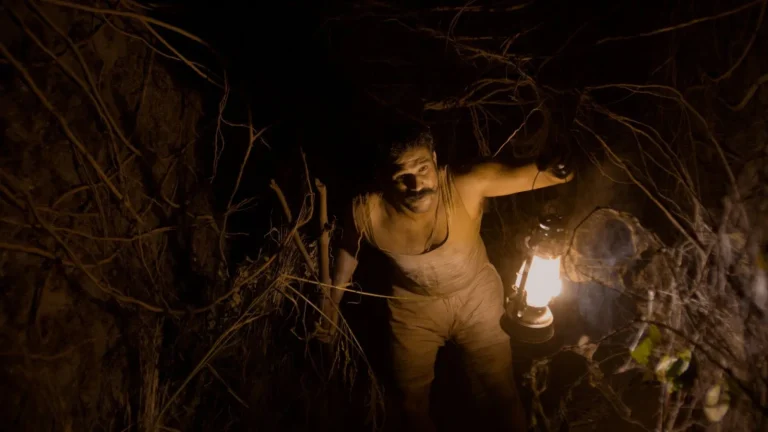I don’t know how I would react to losing a romantic partner and a job at the same time, but when Audrey snuggles in bed and watches YouTube videos late into the night, it seems like a plausible way to escape reality. The quiet disenchantment with which she distances herself from everyday life while doing everything to sustain herself (including watching YouTube videos) quickly starts to appear like a façade she has built around herself. The air around her is so pregnant with the thorny detachment that I am almost astonished they decided to change the title of the film from ‘Porcupine’ to ‘Adopting Audrey’. Evidently, writer and director M. Cahill was inspired by a real story to bring out a nuanced approach to understanding the more complex shades of a parent-child relationship in this drama.
Audrey (played by Jena Malone) is on the brink of losing her partner, her job, and her apartment. While watching cute animal (read: dog) videos, she stumbles upon an advertisement for the adoption of elderly people. Soon, she puts herself up for adoption, despite her parents being alive and occasionally in contact with her. What follows is a hilarious round of meetings between potential elderly adopters and herself, each of them a glaring reminder about the absurdity of the situation and the awkwardness of it all, until she meets Sunny (played by Emily Kuroda) and her reserved husband, Otto (played by Robert Hunger-Bühler).
Initially scruffy, Otto, a retired aerospace engineer with NASA, visibly delights Audrey. They appear to be a natural fit as adopters, and Audrey and Otto arrive at an agreement to test whether the adoption arrangement would work for them till a point in time. Audrey starts living a two-fold life – one in the trunk of her car and another at Sunny-Otto’s place – but they seamlessly blend in the air of impassiveness she carries around. Will Audrey find what she is looking for? M. Cahill’s second directorial feature feels like a drama that couldn’t have taken place except in a quiet suburb during a summer.
It isn’t trying too hard to be anything except a chapter of Audrey’s life, who is always on the move and yet in search of belongingness. This works both as an advantage and a disadvantage for this film. For this to have been a chapter of Audrey’s life, it needed to provide congruent answers – Why is her relationship with her parents so dysfunctional? What does she really crave? Unfortunately, we are greeted with silences, beautifully put in place by Malone’s performance, but that doesn’t help the story. If you find your interest beginning to swing in the second half, it is because the pace of the film slows down to accommodate the quirks of the growing relationship between Audrey and Otto but remains fixed in a directionless stagnancy.
As a matter of fact, when the climax unfolds, I found myself imbibed with Audrey’s general impassivity. On the other hand, the lack of answers in the film holds your interest through it; but there are loose ends that could have been tied into the screenplay to make it a fine web. Sunny and Otto’s children come and go without serving any fruitful purpose and we aren’t given anything tangible to build our ideas upon regarding Otto’s relationship with his children. The ideas are teased, but the story moves too fast for its own good. The result, therefore, is humbling but not moving enough.
Audrey exhibits certain angst typical of people in their mid and late 20s. She is independent, announcing on more than one occasion how she has always had to fend for emotional and material needs. And, she has moved across four cities and changed more than six jobs. She can fix the lighting of the room as easily as she can prepare quick meals. I almost found myself chuckling when she duct-taped her torn blanket – the nonchalance of this kind of jugaad is relatable. As a result, when she is finally in tears, her seething anger at life shines through. There is resignation in her tears, one we don’t see on her face when she goes back to building the tree house the next morning. Even when she swells in grief, she is carefully resilient from heartbreak. Malone owns the performance just as well as the blonde, shortly cropped hair and the summery casual fits she wears in the film. Her relationship with Otto had the possibility of pivoting the film; unfortunately, the opportunity is wasted. What happens to the tree house they were building? I really wish we knew the answer.
Adopting Audrey forces us to carefully look into the life of a young girl struggling to feel at home. Despite her profoundly philosophical but quiet curiosity, she is never quite at ease. This isn’t a coming-of-age story, just a surface-level reflection of what it might feel like to be a little lost in the bad, big world of adulthood.

